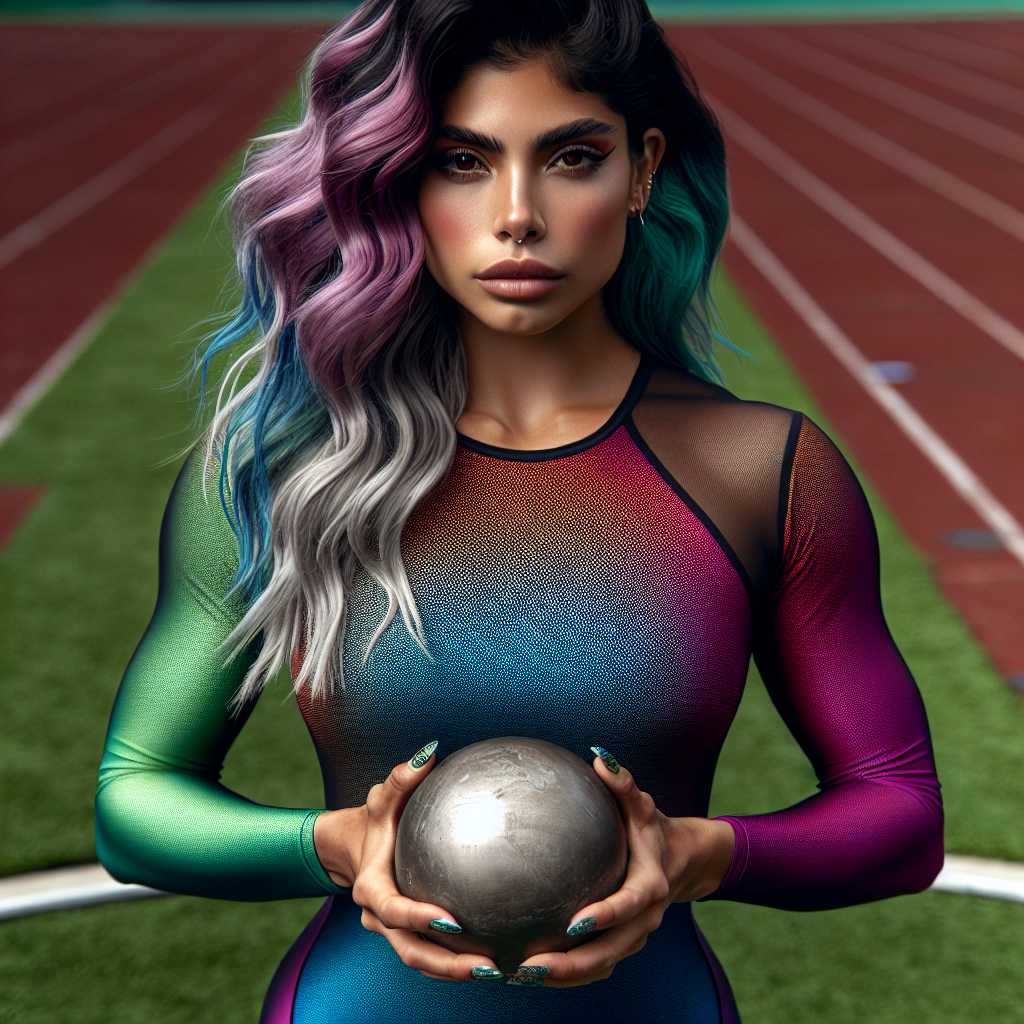## Raven Saunders: An Emerging Shot-Put Star Redefining Athleticism and Activism
Raven Saunders is an American track and field athlete specializing in the shot put who has made headlines not just for her impressive athletic achievements, but also for her charismatic personality and advocacy for mental health and LGBT rights. In this comprehensive exploration of her life and career, we examine Saunders’ path to athletic glory, her impact on sports, and her advocacy work.
Early Life and Rise to Prominence
Raven Saunders was born on May 15, 1996, in Charleston, South Carolina. She discovered her passion for shot put in high school, where she quickly became a top competitor demonstrating remarkable talent. After a highly successful high school career that included two state championships and a national title, Saunders continued to excel at the college level.
Attending Southern Illinois University initially and then transferring to the University of Mississippi, Saunders made a statement in NCAA competitions. She broke collegiate records and collected several NCAA titles, establishing herself as one of the premier shot-putters in the United States.
Olympic Endeavors: A Journey Filled with Ups and Downs
Saunders’ progression naturally led her to the Olympic stage. She qualified for the Rio de Janeiro Olympics in 2016 as a young star with high expectations. Although she finished fifth—an impressive feat for her age—it was evidence of her burgeoning potential.
Contending once again in the Tokyo 2020 Olympics, which were held in 2021 due to the COVID-19 pandemic, Saunders clinched a silver medal with a throw of 19.79 meters. Her unique style, colorful hair, and Hulk mask captured the attention of viewers around the world, marking her as a standout character in international athletics.
A Voice for Mental Health and Diversity
Off the field, Raven Saunders is an outspoken advocate for mental health and LGBTQ+ rights. Through candid talks about her own struggles with depression and anxiety, she has connected with fans and athletes alike who face similar challenges. Her visibility as a queer athlete who openly discusses both her victories and her vulnerabilities has made Saunders a contemporary icon for inclusivity in sports.
In Tokyo, she further harnessed the Olympic platform by raising her arms crossed in an ‘X’ during the medal ceremony—a symbol of support for oppressed communities. This gesture drew praise from those lauding athletes who use their platform for social issues but also scrutiny from Olympic officials who have strict rules regarding protests at games.
Challenges Overcome: Injury and Mental Health Struggles
Saunders’ journey has been anything but smooth. While physical injuries are part and parcel of an athlete’s life, it has been Saunders’ mental health battles that have prompted conversations around wellbeing in professional sports. She has publicly recounted experiences with injury-induced stress apart from confronting societal expectations as one of the most conspicuous figures in her discipline.
Saunders took time away from sports to improve her mental health during a particularly difficult period marked by moments she describes as nearing harmful extremes. This brave decision shone a spotlight on the immense pressures elite athletes face and solidifying the dire need for mental health support systems within athletic communities.
Legacy: Breaking Barriers Within Sport and Beyond
Raven Saunders represents more than just a talented athlete; she represents change within sport and society at large. By challenging stereotypes about body image, sexuality, gender expression, and mental health, Saunders enhances discussions that can transform how athletes are viewed beyond their physical accomplishments.
Her uniqueness transcends performance as it includes changing narratives around what it means to be an Olympian. The kind of openness displayed by Saunders serves as encouragement for future generations—championing diversity and igniting conversations around interfaces among identity, sport, health, and culture.
